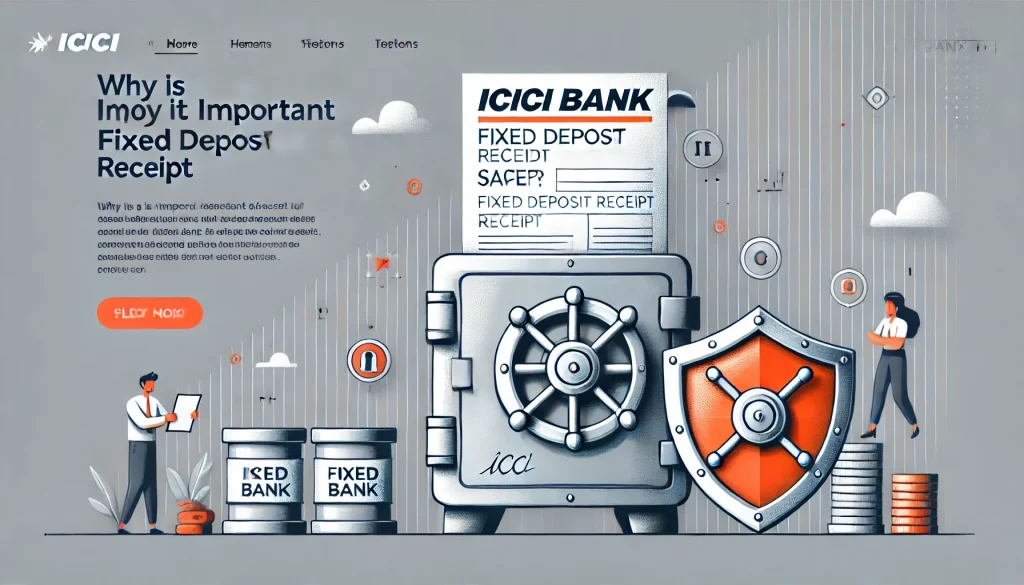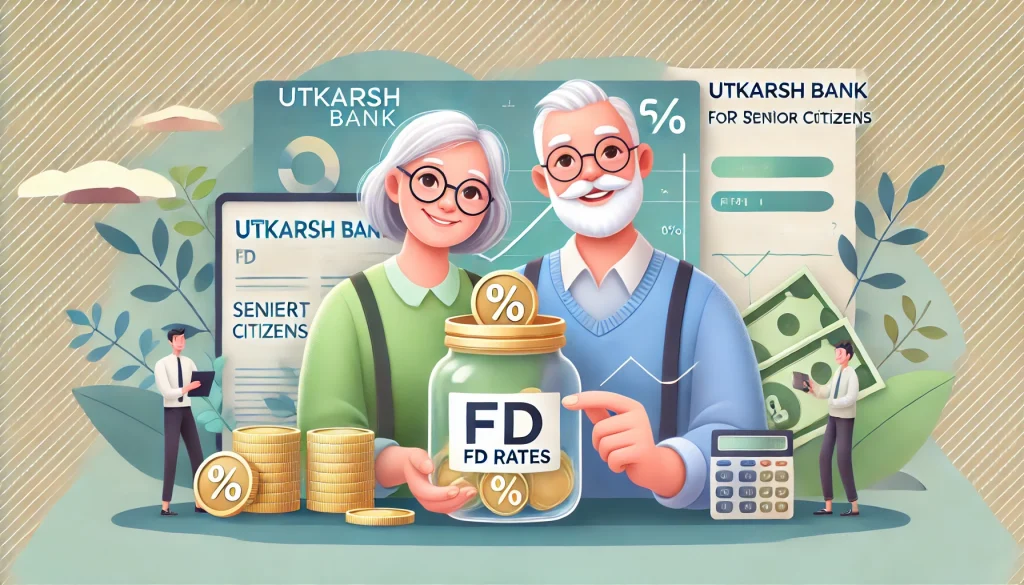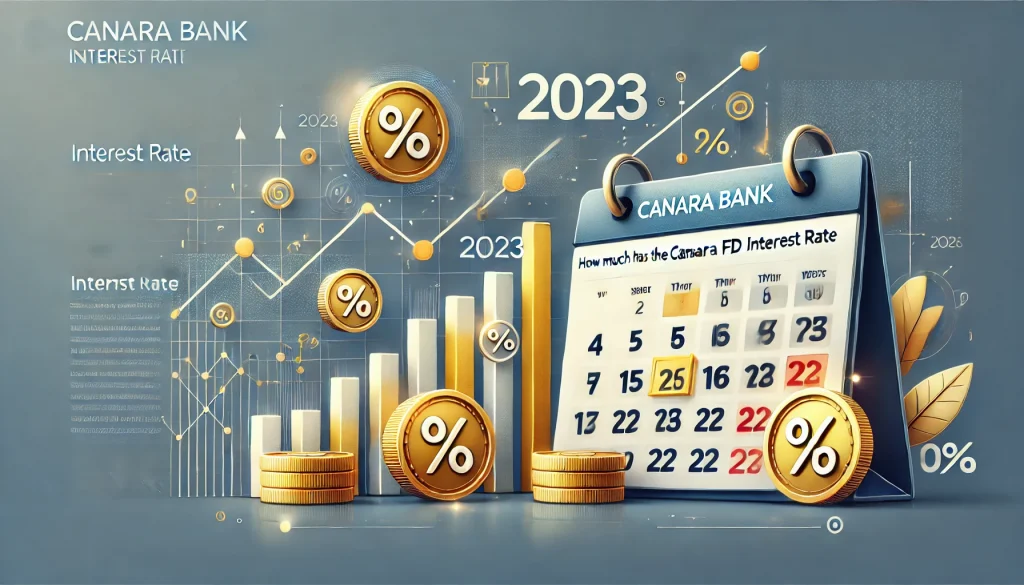
Term deposit is an umbrella term used by banks and Non-banking Financial Institutions (NBFC) to refer to investments like recurring deposits and fixed deposits. Both term deposits and fixed deposits are two popular investment options that offer individuals the opportunity to earn interest on their savings while maintaining a low level of risk. Financial institutions offer both these investment instruments, but they have distinct characteristics and features.
In this blog, we will explore the differences between term deposits vs fixed deposits, their benefits, and factors to consider when choosing between them.
What is a Term Deposit?
A term deposit, also known as a time deposit, is a fixed-period financial product offered by banks and other financial institutions. It involves depositing a specific amount of money for a fixed period, usually from a few months to a few years. The interest rate for a term deposit is predetermined and fixed for the entire deposit duration.
Also referred to as a certificate of deposits, term deposits come with a higher rate of interest if we compare it with savings deposits. These Deposits are risk-free, safe and secure as they receive the backing of Deposit Insurance and Credit Guarantee Corporation (DICGC).
Similar to fixed deposits, you can receive interest income after maturity or periodically. Banks and other financial institutions offer their customers a wide range of term deposit schemes. Some of the popular ones are Post Office Time Deposit, Sukanya Samridhhi Yojana, etc.
0
What is a Fixed Deposit?
Fixed deposits, commonly known as FDs, are a type of term deposit offered by banks and NBFCs that allows individuals to deposit a fixed amount of money for a predetermined period. After maturity, you receive the amount you have invested along with the compounded interest.
The interest rate for a fixed deposit is also fixed and agreed upon when opening the account. This is possible because no market-related risks are involved while investing in FDs. FD is a safe and popular investment option that offers a higher rate of return in comparison to a savings account.
The rate of interest available for an FD investment depends on your deposit amount and tenure of investment. Most banks and other financial institutions offer FD tenures ranging between 7 days to 10 years. Some banks also offer the option for premature withdrawal on behalf of a penalty.
Term Deposit vs Fixed Deposit
If you are planning to invest your hard-earned money in a scheme that offers stable returns, then you can choose between a term deposit and a fixed deposit. However, you need to know which is a better option: term deposit vs fixed deposit. Let us take a look at the tabular representation of the difference between a fixed deposit and a term deposit:
| Features | Term Deposit | Fixed Deposit |
|---|---|---|
| Tenure | Terms deposits might offer a floating or variable interest rate that depends on market conditions. | If you invest in a fixed deposit, you can open the account without any fixed term. |
| Return | Term deposits often offer higher rates of interest than fixed deposits and therefore offer higher returns. | Fixed deposits sometimes offer lower rates of interest in comparison to term deposits, therefore offering lower returns. |
| Interest Rate | Terms deposits might offer a floating or variable interest rate that depends on market conditions | Fixed deposits come with a fixed interest rate |
| Interest Calculation | For the same maturity term, the interest rate of term deposits is lower than fixed deposits. | FDs earn high-interest income in comparison to term deposits for the same maturity term. |
| Lock-in Period | Term deposits have shorter lock-in periods than fixed deposits | Fixed deposits have longer lock-in periods in comparison to term deposits |
| Suitable Investors | Suitable for people who have short-term saving goals and want to set a monthly investment amount. | FDs suit people with medium to long-term saving goals and wish to invest a lump sum for a few years. |
Benefits of a Term Deposit
This type of deposit comes with an array of benefits investors can leverage by keeping their money in it. These are as follows:
1. Guaranteed Returns
When you invest in a term deposit, you will receive the returns that were agreed upon at the start of the investment. Unlike equities, term deposits ensure fixed interest rates. This means even if market interest rates are falling, your term deposit will keep earning the same level of interest.
2. Loan Against Deposit
Investing in a term deposit allows you to collateralise it for getting a loan in case of any urgent financial requirement. Most banks generally offer up to 60 to 75% of the investment amount as a loan.
3. Simple and Quick Investment Process
Investing in term deposits is completely hassle-free and does not take more than a couple of minutes. Most banks offer the opportunity to invest from the comforts of your home. You decide the tenure, deposit amount and rate of interest while investing, after which they cannot be revised.
4. No Service Charges Applicable
One of the best things about term deposits is that as long as you do not opt for a premature withdrawal facility, you do not have to bear any charges. You do not need to pay anything extra besides the deposit amount.
5. Flexible Interest Payout Options
While choosing the payout options, you can opt to receive them at the end of the maturity period. You can also opt for the non-cumulative payout option, which will offer your earnings periodically. In the case of a non-cumulative payout, you can receive your payout monthly, quarterly, half-yearly or annually, whichever is convenient for you.
6. Added Advantage for Senior Citizens
By investing in term deposits, senior citizens can take advantage of higher interest rates offered by banks and other financial institutions. The rates, however, depend on the amount you invest and the tenure for which you invest it.
7. Liquidity
Most banks and non-banking financial corporations offer the option of premature withdrawal for the term deposit schemes. However, a penalty is applicable if you opt for this facility.
Benefits of a Fixed Deposit
Fixed deposit is a unique product that offers safety, flexibility and liquidity at the same time. It is a prudent asset allocation strategy every person can own. It is one of the oldest forms of investment instruments. There are numerous benefits of fixed deposit, among which some of them are listed below:
1. Zero Risk Saving
FDs are considered one of the safest investment options, offering fixed rates of returns that do not fluctuate with market fluctuations. Therefore, it is a great starting point if you plan to start saving. FDs have backing from DICGC, which makes it safer.
2. Hassle-Free Investment Option
You can easily invest your hard-earned money in fixed deposit schemes. For this, you can either visit the nearest branch of the bank you wish to invest in or open it from the comforts of your home. After your scheme matures, you can auto-renew it or get it credited to your account.
Now, you can use the Stable Money app and invest your hard-earned money in multiple FDs, such as Utkarsh SF, Shivalik SF, Axis Bank, Shriram, Bajaj Finance, and South Indian Bank. All you need is to download the Stable Money app from the Play Store or App Store and sign up with your registered mobile number and email ID. Now, you can explore the FDs and choose the one that suits you best.
3. Tax Saving Benefit
The majority of banks offer tax-saving fixed deposit options. By investing in this scheme, you can lower the taxable amount that you have to pay. As per Section 80C of the Income Tax Act of 1961, if you invest in a Tax Saver Fixed Deposit, you can get a tax deduction of up to ₹1,50,000. However, in this case, you will have a lock-in period of 5 years before which you cannot withdraw any sum.
4. Loan Against FD
In case of any financial emergency, you can use your FD as collateral to get a loan. This is a better option instead of opting for an unsecured loan, which might charge high interest. After you take the loan, you will keep on receiving the interest as was discussed when you first invested in it. Therefore, you will have the dual advantage of not breaking your FD or opting for a personal loan. Most banks offer a loan of up to 90% of the deposit amount.
5. Ease of Reinvestment
After your FD scheme matures, you can either get the amount credited to your account or reinvest it. There is also a facility known as auto-renewal, which helps in automatically renewing your FD scheme for a predetermined period. You can give the instructions while opening your FD account so that your FD scheme gets renewed as soon as it matures without any hassle.
6. Higher Rate of Returns
In comparison to savings deposits, fixed deposits offer a higher rate of return. Therefore, FDs are a better option for investing your money, along with a guarantee of fixed returns.
7. Easy Liquidity
Liquidating the funds that you have invested in your FD account is extremely simple. The premature FD withdrawal process is quick and simple, and you can opt for it from the comfort of your home using the net banking portal or the app. However, you will have to bear a small penalty for the same.
8. Flexible Tenure
Fixed deposit schemes come with flexible tenures. Every bank and NBFC have their own minimum and maximum tenure rule. However, the final decision lies in the hands of the deposit holder. Once set, you cannot change the tenure of FDs.
Final Word
To conclude, term and fixed deposits offer individuals an opportunity to earn interest on their savings with minimal risk. Your choice between a term deposit vs fixed deposit depends on factors such as investment goals, interest rates, and maturity periods. Evaluating these factors and considering personal financial goals before making an informed decision is crucial.
FAQs
Yes, it is possible to withdraw funds from a term deposit before maturity. However, it may result in penalties or loss of interest. It is, therefore, important to review the terms and conditions of the specific deposit to understand the implications of early withdrawals before going forward with it.
In India, term deposits and fixed deposits offered by banks are insured by Deposit Insurance and Credit Guarantee Corporation, RBI, up to ₹5 lakhs
While term deposits are suitable for short-term savings goals, fixed deposits are suitable for medium or long-term savings goals.
Yes, you can open multiple term deposits or fixed deposits simultaneously with different financial institutions. This can diversify your investments and optimise returns.
The interest rates for term deposits and fixed deposits are typically non-negotiable. However, it’s worth comparing rates offered by different institutions to find the most competitive option.
Disclaimer
This article is solely for educational purposes. Stable Money doesn't take any responsibility for the information or claims made in the blog.


